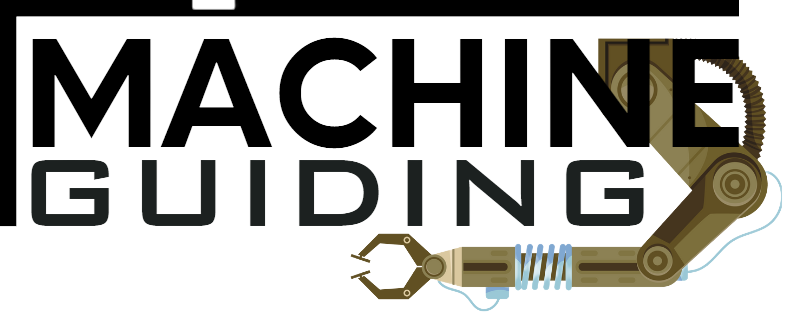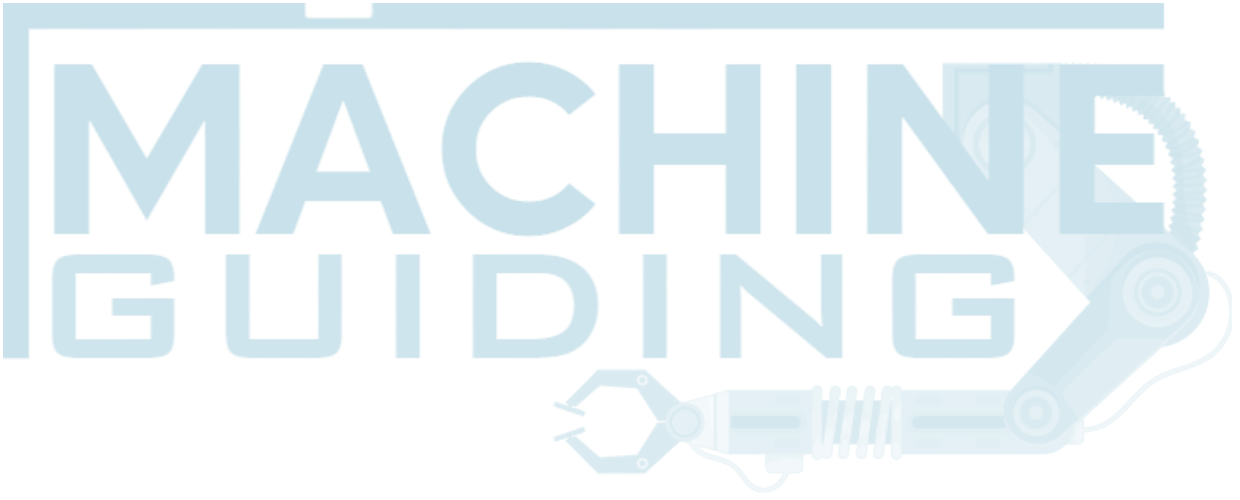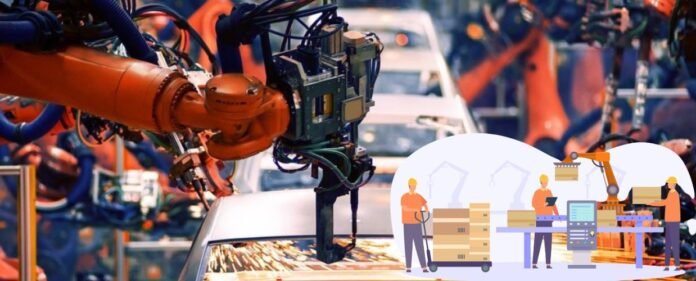Intelligent automation revolutionizes the manufacturing industry, enabling manufacturers to optimize production processes, reduce downtime, and increase efficiency. Manufacturers can achieve greater accuracy, speed, and precision in their operations by leveraging technologies such as artificial intelligence, machine learning, and robotics.
Why are Manufacturing Companies Adopting Intelligent Automation?
Manufacturing companies have long been at the forefront of industrial automation, adopting robotics, sensors, and programmable logic controllers to increase productivity, reduce costs, and improve quality. However, in recent years, a new movement has emerged: the adoption of intelligent automation. Intelligent automation combines Artificial Intelligence (AI) and Robotic Process Automation (RPA) to automate more complex and cognitive tasks. This new approach has gained popularity among manufacturing companies due to its ability to bring efficiency, flexibility, and agility to their operations.
One of the major reasons why manufacturing companies are adopting intelligent automation is to increase efficiency and productivity. With traditional automation, robots and other machines perform repetitious tasks, freeing human workers to focus on more complex and value-adding activities. However, intelligent automation takes this further by automating cognitive tasks that previously required human intervention. For example, machine learning algorithms can explore data from sensors and other sources to optimize production processes and identify potential issues before they occur. By automating these tasks, manufacturing companies can achieve greater efficiency, reduce costs, and improve quality.
Another key benefit of intelligent automation is that it enables manufacturing companies to be more flexible and agile. Traditionally, manufacturing operations were designed around a fixed set of products and processes, with little room for customization or adaptation. However, with the rise of intelligent automation, companies can more easily reconfigure their operations to accommodate transforming customer demands, market conditions, and technological innovations. For example, robots can be reprogrammed to perform new tasks, while machine learning techniques can analyze customer data to identify new product opportunities. This flexibility and agility enable manufacturing companies to stay ahead of the business competition and respond quickly to changing market conditions.
It can also improve the quality of manufacturing processes and products. With traditional automation, machines, and robots perform tasks based on pre-programmed instructions, which may not consider changing conditions or unexpected events. In contrast, intelligent automation can use machine learning algorithms to analyze real-time data and adjust processes accordingly. For example, sensors can detect variations in raw materials or equipment performance and adjust production processes to ensure consistent quality. Manufacturing companies can increase customer satisfaction and loyalty by improving the quality of manufacturing processes and products.
Another benefit of intelligent automation is that it can help manufacturing companies address labor shortages and skills gaps. With an aging workforce and a shortage of skilled workers, many manufacturing companies struggle to find enough qualified employees to keep their operations running smoothly. However, intelligent automation can help alleviate this problem by automating difficult or dangerous tasks for humans. For example, robots can perform tasks in hazardous environments, while machine learning algorithms can analyze data patterns that would be difficult for humans to detect. By automating these tasks, manufacturing companies can reduce their reliance on human workers and ensure their operations are more efficient and safe.
Intelligent automation can help manufacturing companies reduce costs and improve their bottom line. By automating tasks and optimizing production processes, companies can reduce waste, improve efficiency, and increase productivity. Over time, it can lead to important cost savings and increased revenue and profits. By using machine learning techniques to analyze data and detect areas for improvement, manufacturing companies can make more informed business decisions and allocate resources more effectively.
The Benefits of Intelligent Automation in Manufacturing
Intelligent automation in manufacturing offers several benefits, including increased efficiency and productivity, flexibility, agility, and improved quality control and cost reduction. Manufacturers can optimize production, reduce downtime, and respond quickly to changing market demands by automating various processes. Additionally, automation technologies enable companies to analyze vast amounts of data and identify specific areas for improvement, ultimately increasing profitability and improving customer satisfaction.
Flexibility and Agility
Another key benefit of intelligent automation in manufacturing is increased flexibility and agility. Unlike traditional automation, which is often designed around fixed processes and products, intelligent automation can quickly adapt to transforming customer demands, market conditions, and technological innovations. Here are three points that describe the importance of Flexibility and Agility:
Rapid Adaptability
Intelligent automation in manufacturing enables companies to rapidly adapt to changing market requirements and customer demands. By automating various processes, manufacturers can respond quickly to changes in product specifications, volumes, and delivery requirements. Rapidly growing technologies such as artificial intelligence, machine learning, and robotics can analyze data from multiple sources, including sensors, production logs, and customer feedback, to make real-time decisions and optimize processes.
Streamlining Production
Intelligent automation in the manufacturing process can help to streamline production processes, optimizing efficiency and productivity. Companies can reduce human errors, improve product quality, and increase throughput by automating tasks such as material handling, assembly, and quality control. Additionally, automation technologies such as robots, drones, and autonomous vehicles can operate 24/7, reducing downtime and improving overall productivity.
Improved Responsiveness
Intelligent automation in manufacturing enables companies to respond quickly to changing market demands, improving responsiveness and customer satisfaction. Manufacturers can reduce lead times, improve delivery accuracy, and increase customer satisfaction by automating order processing, inventory management, and shipping tasks. Additionally, automation technologies such as machine learning algorithms can analyze customer data to identify new product opportunities and adjust production schedules accordingly.
Increased Efficiency and Productivity
Automation technologies can handle complex tasks faster and more precisely than human workers, leading to increased output and improved product quality. Additionally, automation technologies can optimize production processes, reducing downtime and increasing throughput. It improves productivity and reduces costs, allowing manufacturers to remain competitive in an ever-changing market. By leveraging automation technologies, manufacturers can respond quickly to changing market demands, enabling them to adapt their operations to meet customer needs and capitalize on emerging trends. Ultimately, intelligent automation in manufacturing enables manufacturers to achieve greater efficiency and productivity, resulting in improved profitability and customer satisfaction.
From Quality Control to Cost Reduction
From quality control to cost reduction, automation technologies enable manufacturers to streamline operations and improve their bottom line. For example, by automating quality control processes, manufacturers can decrease the risk of human error, enhance product consistency, and increase customer satisfaction. At the same time, automation technologies such as machine learning algorithms can explore data from sensors, cameras, and other sources to detect and correct quality issues in real time, leading to improved quality and reduced costs. Intelligent automation also drives cost reduction in manufacturing by helping manufacturers to optimize their production processes and lower labor costs. For example, robotics and other automation technologies can handle material handling tasks with greater speed and accuracy, ultimately reducing labor costs and increasing throughput.
Top Use Cases for Intelligent Automation in Manufacturing
Intelligent automation transforms the manufacturing industry by improving quality control, streamlining production processes, and increasing efficiency. Automation technologies can significantly reduce human error and optimize operations, increasing productivity and profitability. This article will explore the top use cases for intelligent automation in manufacturing.
Predictive keeping is one of the most significant use cases for intelligent automation in manufacturing. By monitoring equipment data in real-time, machine learning algorithms can predict equipment failure before it occurs, enabling maintenance teams to take proactive measures. It not only reduces downtime and production losses but also reduces maintenance costs and extends the lifespan of the equipment. Additionally, predictive maintenance can improve safety by reducing the risk of equipment failure and workplace accidents.
Quality control is another key use case for intelligent automation in manufacturing. By automating quality control processes, manufacturers can reduce the risk of human error, improve product consistency, and ultimately increase customer satisfaction. For example, machine learning algorithms can analyze data from sensors, cameras, and other sources to detect and correct real-time quality issues. Additionally, robotics and other automation technologies, such as inspections and testing, can perform quality control tasks faster and more accurately.
Inventory management is a critical process in manufacturing, and intelligent automation can significantly improve its efficiency and accuracy. By using machine learning algorithms to analyze inventory data, manufacturers can optimize their inventory levels, reducing waste and minimizing the risk of stockouts. Additionally, automation technologies such as robotics and autonomous vehicles can handle material handling tasks, such as picking, packing, and shipping, with greater speed and accuracy, ultimately reducing labor costs and increasing throughput.
Production planning and scheduling are complex processes that can benefit significantly from intelligent automation. Manufacturers can optimize their production schedules, reduce downtime, and increase efficiency by using machine learning algorithms to analyze production data. Additionally, automation technologies can perform tasks such as scheduling, resource allocation, and capacity planning with greater speed and accuracy, decreasing the risk of errors and improving overall productivity.
Supply chain management is a critical process in manufacturing, and intelligent automation can significantly improve its efficiency and effectiveness. Manufacturers can optimize their reserve chain processes by using machine learning algorithms to analyze supply chain data, reducing lead times and minimizing costs. Additionally, automation technologies such as robotics and autonomous vehicles can handle tasks such as transportation and warehousing, reducing labor costs and improving overall efficiency.
Customer service is another area where intelligent automation can significantly impact manufacturing. Manufacturers can automate customer service tasks such as order tracking, billing inquiries, and technical support using chatbots and other AI-powered technologies. It reduces the workload of customer service teams, improves response times, and ultimately increases customer satisfaction.
Conclusion
Intelligent automation drives efficiency and productivity in the manufacturing industry, transforming how manufacturers produce goods and manage their operations. Manufacturers can optimize production, reduce downtime, and respond quickly to changing market demands by leveraging automation technologies, for example, artificial intelligence (AI), machine learning, and robotics. Additionally, automation technologies enable companies to analyze vast amounts of data and identify the ultimate areas for improvement, ultimately increasing profitability and improving customer satisfaction. As the manufacturing industry persists to evolve, we can expect to see even greater benefits from intelligent automation, making it a key driver of growth and innovation.


















